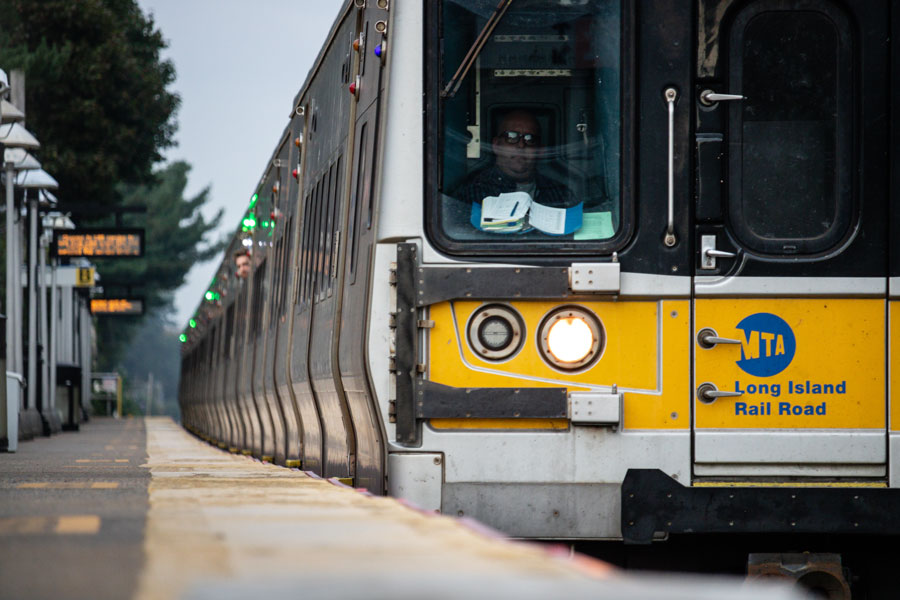
BABYLON , NY – The Long Island Rail Road (LIRR) is set to undergo a significant transformation as part of the Metropolitan Transportation Authority’s (MTA) historic $68.4 billion capital plan. With approximately 6 billion earmarked specifically for the LIRR, this investment will modernize the railway, replace aging infrastructure, enhance accessibility, and potentially electrify key sections of the railway, making it a pivotal moment in the region’s transit history.
Key Features of the Expansion
- Replacement of Aging Train Cars: A major component of the project is the retirement of the LIRR’s aging M3 train cars, many of which date back to the 1980s. These will be replaced by approximately 160 new cars designed to improve passenger comfort and service reliability. This move is expected to reduce the likelihood of breakdowns and delays, a common issue with older trains.
- ADA Accessibility Upgrades: Accessibility remains a top priority, with several stations across the system set to receive ADA-compliant improvements. Stations like Forest Hills, Hollis, and Babylon will benefit from extended platforms and upgraded infrastructure to support future capacity increases. This includes new elevators, ramps, and platform replacements, making the LIRR more accessible for passengers with disabilities.
- Electrification Studies: Another critical part of the plan involves conducting studies on the potential electrification of the Port Jefferson Branch and the track between Ronkonkoma and Yaphank. Electrification would not only improve the environmental footprint of the LIRR but also reduce operational costs in the long run. While these are currently in the study phase, they represent a forward-thinking approach to making the LIRR more sustainable.
- Additional Infrastructure Projects: The expansion plan also includes a focus on safety and capacity improvements, such as the replacement of the Webster Avenue Bridge in Manhasset, which has reached the end of its lifespan. The reconstruction will improve not only the bridge but also adjacent roadways, sidewalks, and drainage systems.
Expected Completion Timeline
While the project is extensive and will be rolled out over several years, some components, such as the introduction of new trains and accessibility improvements, are expected to make noticeable impacts within the next few years. Key elements of the project are slated to be completed within the 2025-2029 capital plan. This includes electrification studies, station upgrades, and the rollout of new train cars.
The LIRR’s Babylon Station, in particular, will see comprehensive upgrades to platforms and canopy replacements, which will provide commuters with a safer and more comfortable experience. Accessibility improvements, including two new ADA-compliant elevators, will be installed at the station.
Impact on Long Island Commuters
The expansion of the LIRR will bring much-needed relief to the region’s busy transit system, which serves tens of thousands of commuters daily. By modernizing its infrastructure and improving service reliability, the LIRR is set to provide a better experience for daily commuters and occasional travelers alike. The electrification of more lines and the move towards greener transportation options will also support the state’s environmental goals, reducing the LIRR’s carbon footprint and contributing to sustainability.
Additionally, the station upgrades will ensure that the system is more inclusive and accessible, with improvements designed to cater to passengers with disabilities and mobility challenges. With the focus on electrification and accessibility, the LIRR is positioning itself as a modern, efficient, and environmentally friendly transportation option for the future.
Total Funding For The Project
While the LIRR expansion project is a series of projects, and the total funding for these projects is $17.7 billion. This figure includes the LIRR Main Line Expansion, the Grand Central Madison terminal, and other improvements to the LIRR system. However, the LIRR Main Line Expansion, specifically the section from Floral Park to Hicksville, received $1.4 billion in federal funding. The remaining funds for this project came from the MTA Capital Program, which is a state-funded program.


